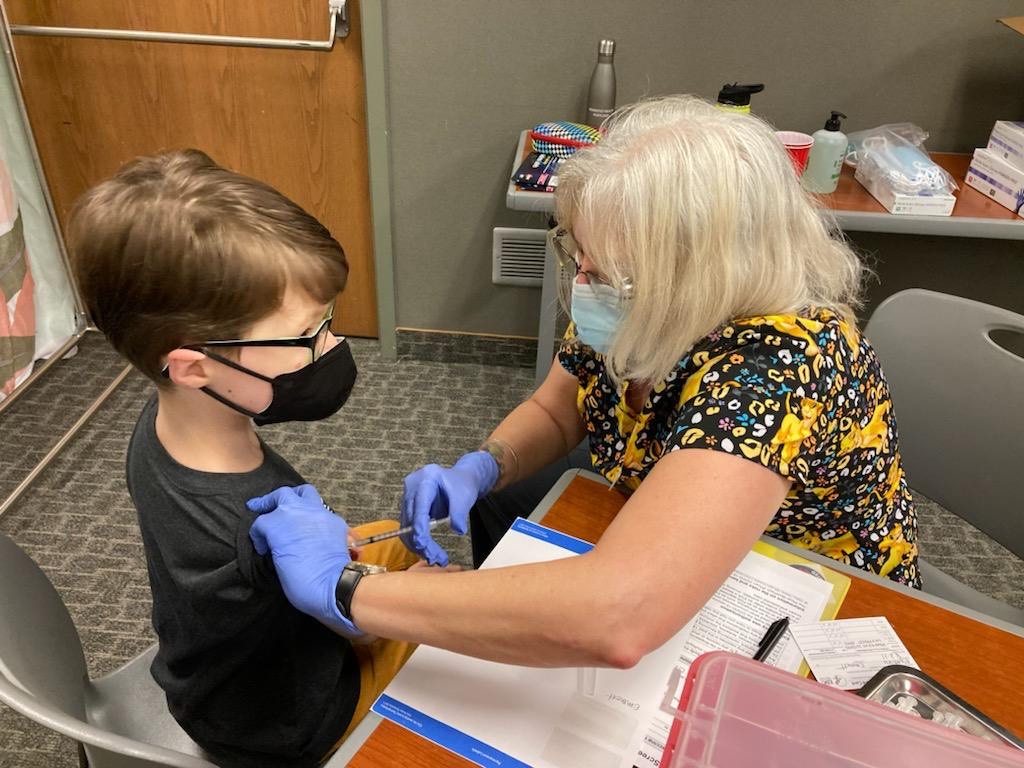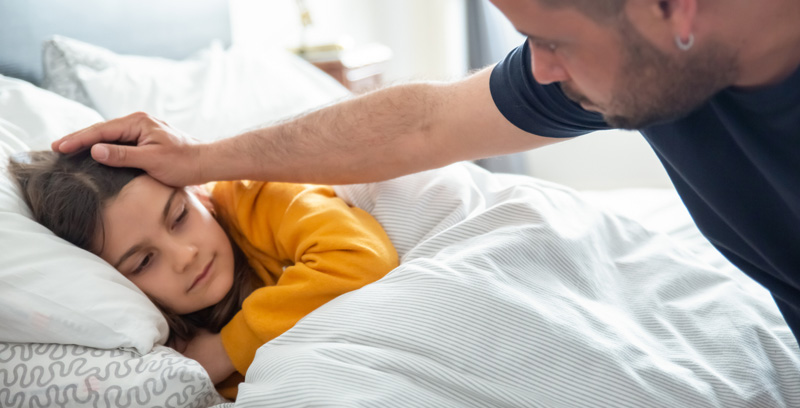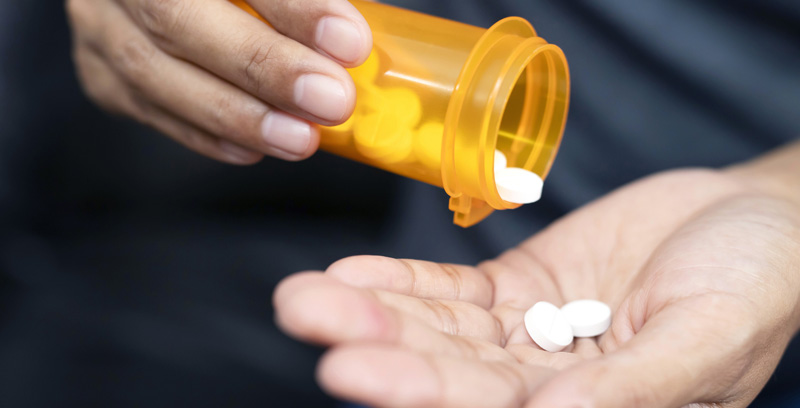COVID-19 Vaccines
COVID-19 vaccination is the safest and most effective way to prevent complications of COVID-19 infection such as hospitalization, MIS-C, long-COVID and death. While most children who become infected with COVID-19 recover, and many of those infections are mild, not all are so lucky. And we are still learning about the long-term consequences of COVID-19 infections.
COVID-19 vaccines are exceedingly safe. Like every other vaccine, they do not provide 100% immunity, and with increasingly contagious variants we do see more breakthrough infections. Despite this, they remain highly effective at preventing complications. Our support of COVID vaccination is not just empty words; every single one of us with children, as well as every pediatrician we know, have vaccinated their infants, children and teens as soon as they were eligible.
Call now to make an appointment for your child to be vaccinated.
We Recommend Getting the Updated 2023-2024 COVID-19 Vaccine
Children 6 months - 4 years old should have one dose of the 2023-2024.
COVID vaccine, depending on prior vaccination status. Those who have previously not received any COVID-19 vaccines need 2 doses of Moderna or 3 doses of Pfizer vaccines.
Children 5 - 11 years old should have one dose of the 2023-2024 COVID vaccine, at least 8 weeks after the last dose.
Everyone 12 and older should have one dose of the 2023-2024 COVID vaccine, at least 8 weeks after the last dose.

Getting a COVID-19 Vaccine in Our Office
Vaccines are one way to prevent COVID-19, but there are other things you can do too. Layering protections is an important strategy in lowering risk and minimizing COVID-19 exposures and infections.
- Improving air quality is vital, as the SARS-CoV-2 virus is airborne, meaning it can remain floating in the air for hours. Opening windows, running fans, and HEPA filters (or homemade Corsi-Rosenthal boxes) can reducing transmission of the virus.
- Ventilation and filtration in schools has been shown to reduce COVID-19 transmission and absenteeism. Talk to your child’s school!
- Masks remain a very effective layer of protection in enclosed or crowded spaces, especially when COVID-19 cases are high.
- Getting ready for a big trip, competition, performance, or school event and don’t want to miss it? Take extra precautions, and mask in the two weeks leading up to the event!
- Children and teens who are at high risk for severe COVID-19 infection may be able to receive antiviral medications.
- Paxlovid is recommended for those 12 years or older with certain medical condition that places them at risk for developing severe disease. Call us to determine if your child is eligible. Paxlovid should be started within the first 5 days of becoming sick.
- Remdesivir is another antiviral that is approved down to 28 days of age. However, it if given by IV infusion, once daily over 3 days.


COVID-19 Vaccine FAQs
The CDC recommends getting the dose that is appropriate for the age the child is on the they are vaccinated, but there are dosing options for those turning 5 between doses.
Questions and Answers about COVID-19 Vaccines from Children's Hospital of Philadelphia's Vaccine Education Center.
COVID-19 Resources are available in multiple languages from Boost Oregon.
The American Academy of Pediatrics has a number of articles and FAQs on their Healthy Children website.
How COVID Vaccines Work, a video for children from Cincinnati Children's Hospital.
How COVID-19 mRNA Vaccines Work, from the Vaccine Makers Project, shows how your body uses the mRNA vaccine with beautifully done graphics. They have many other videos covering everything from COVID-19 viral vector vaccines to how antibodies work.
A pediatric cardiologist talks about Myocarditis and COVID-19.

The material provided here is for informative purposes only. If you need specific medical advice, please call our office for an appointment or ask to speak with one of our advice nurses at 503-255-3544.

COVID-19 FAQs
MIS-C is an extremely rare, but serious condition in children that is associated with COVID-19 infection. MIS-C is characterized by inflammation in multiple organ systems (brain, heart, lung, kidney, skin or intestines), and can cause blood clots. Children with MIS-C are very ill and require hospital care, along with follow-up care after they leave the hospital. Fortunately, most children with MIS-C have recovered.
Call right away if your child has ongoing fever AND any of these symptoms:
- Stomach pain
- Bloodshot eyes
- Diarrhea
- Dizziness or lightheadedness
- Skin rash
- Vomiting
COVID-19 infection has been shown to cause heart inflammation in young people, even with mild or asymptomatic infections. Both myocarditis (inflammation of the heart muscle) and epicarditis (inflammation of the lining around the heart) have been seen. These conditions could worsen and become dangerous with exercise. Steps need to be taken to either clear a student athlete or determine if they need an ECG or a cardiology consultation to make sure they can return to sports safely.
There are many steps you can take to keep your baby safe. One of the most important ones is to make sure you and everyone living with you or taking care of your baby is vaccinated against COVID-19. Limit visitors to your house, and have anyone who is sick wait to meet your baby. Babies love being outside so go for walks as much as you would like, but don't take your baby to large gatherings or crowded places.
In the hospital and at home, wear a mask when you are near or holding your baby. Ventilation (air purifiers, open windows) helps to decrease the risk of spreading COVID by lowering the number of viral particles in the air. Breastfeeding is encouraged, as you can give your baby antibodies your body has made, but it is important to wash your hands and wear a mask. You can find more information from the AAP and the CDC.
We are continually learning more about COVID-19 and how it affects people differently, and children may well have different risk factors than adults. The CDC has a list of conditions that are thought to put people at high risk for severe COVID-19. People with these risk factors may be able to receive antiviral medications. You can find more information on the OHA Treatment Page. Call us right away if you think your child is at high risk, as these medications need to be started as soon as possible.




